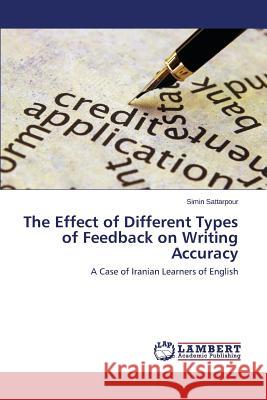The Effect of Different Types of Feedback on Writing Accuracy » książka
The Effect of Different Types of Feedback on Writing Accuracy
ISBN-13: 9783848409112 / Angielski / Miękka / 2014 / 160 str.
Building on previous studies on the effectiveness of different types of written corrective feedback, the present study aimed at investigating whether direct focused corrective feedback and direct unfocused corrective feedback produced any differential effects on the accurate use of English articles by EFL learners across two different proficiency levels (low and high). In current study, the participants were divided into low and high proficiency levels by administering a TOEFL test. This led to formation of two proficiency levels, 60 participants in each level, totaling 120 participants. Then, each proficiency level was classified into three groups, two experimental groups and one control group. The first experimental group received focused corrective feedback; the second experimental group received unfocused corrective feedback, while the third one, as a control group, received no feedback. The ANOVA tests with post-hoc comparisons indicated that focused group did better than both unfocused and control groups in terms of accurate use of English articles in both proficiency levels. Therefore, these results suggested that unfocused corrective feedback is of limited pedagogical value
Building on previous studies on the effectiveness of different types of written corrective feedback, the present study aimed at investigating whether direct focused corrective feedback and direct unfocused corrective feedback produced any differential effects on the accurate use of English articles by EFL learners across two different proficiency levels (low and high). In current study, the participants were divided into low and high proficiency levels by administering a TOEFL test. This led to formation of two proficiency levels, 60 participants in each level, totaling 120 participants. Then, each proficiency level was classified into three groups, two experimental groups and one control group. The first experimental group received focused corrective feedback; the second experimental group received unfocused corrective feedback, while the third one, as a control group, received no feedback. The ANOVA tests with post-hoc comparisons indicated that focused group did better than both unfocused and control groups in terms of accurate use of English articles in both proficiency levels. Therefore, these results suggested that unfocused corrective feedback is of limited pedagogical value











